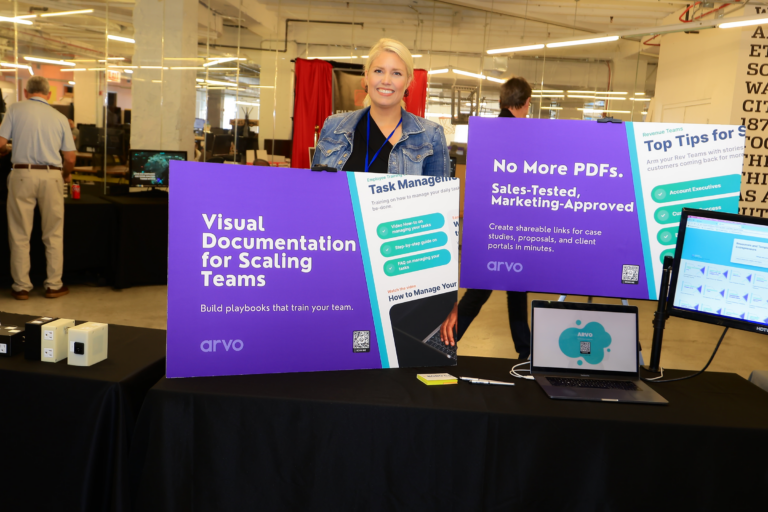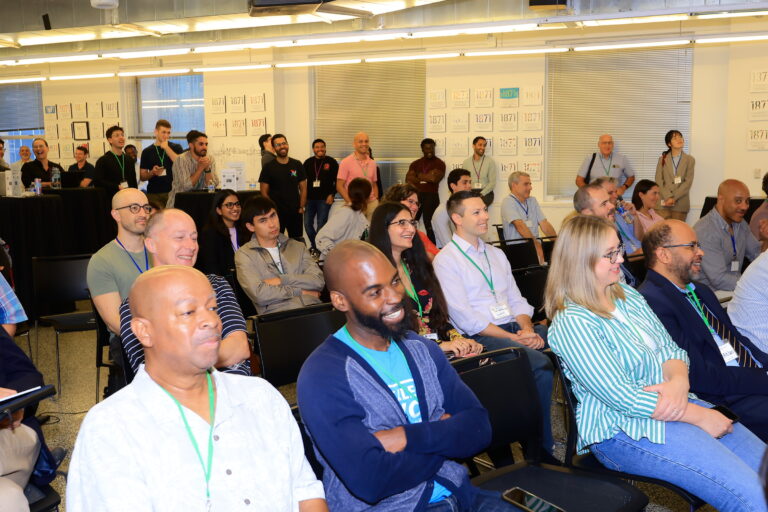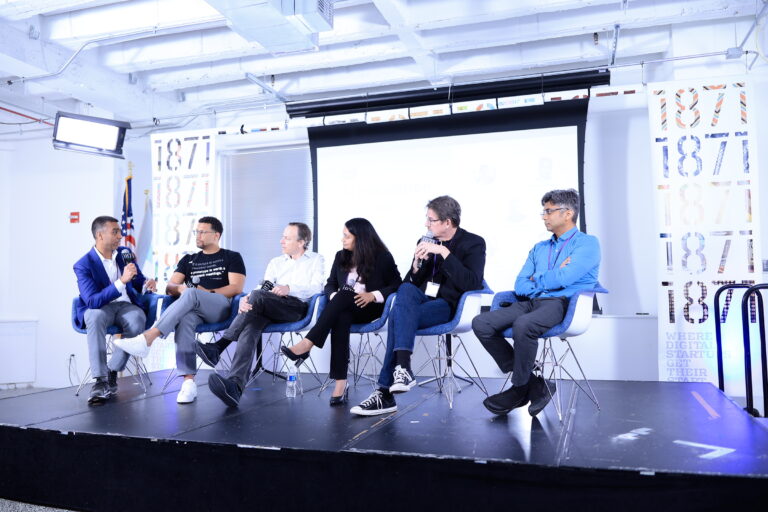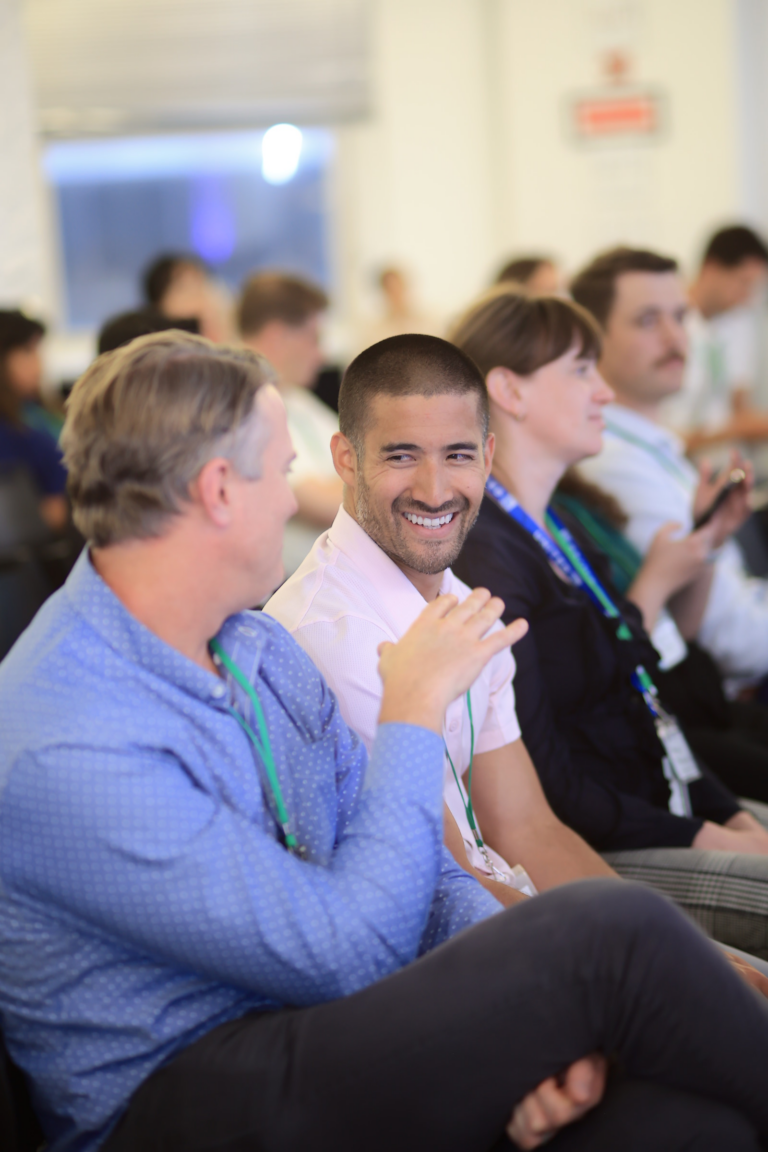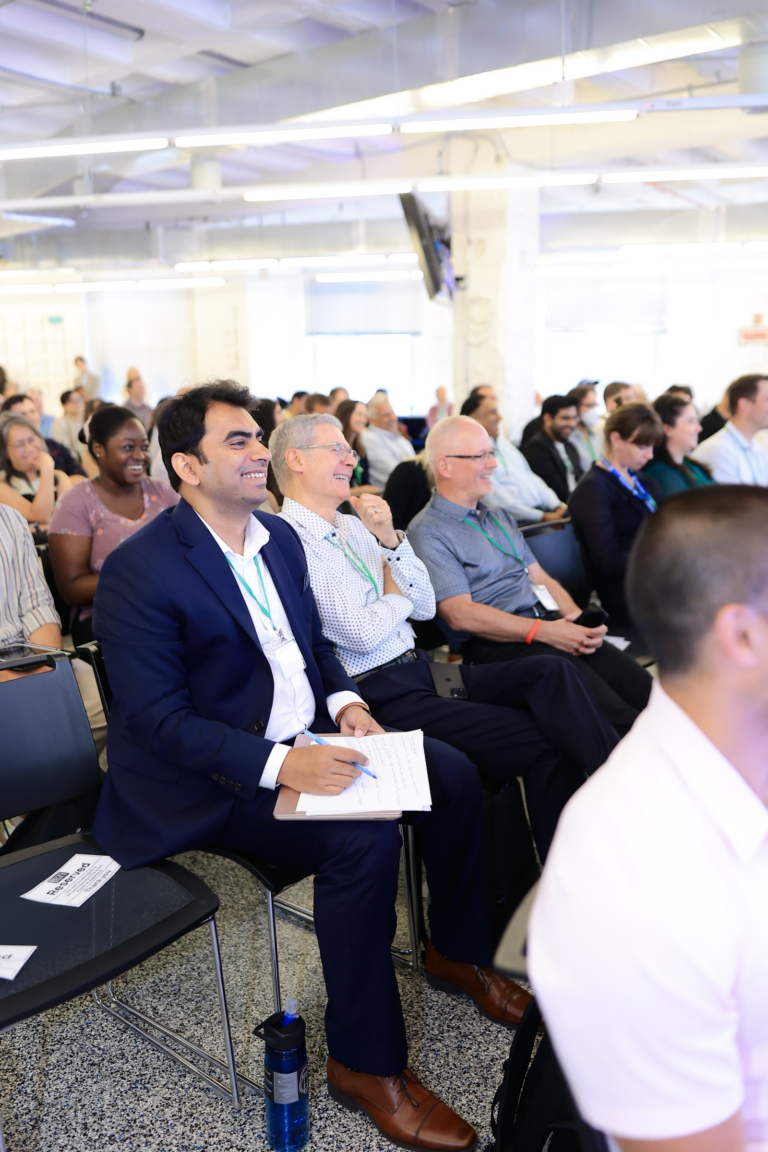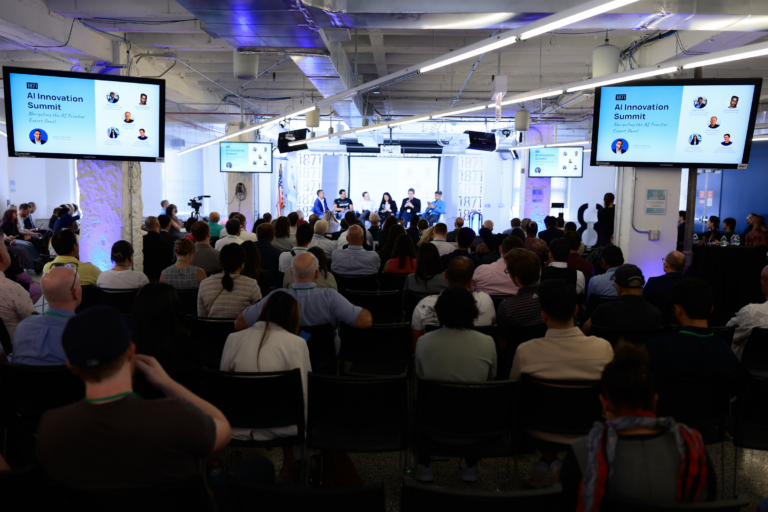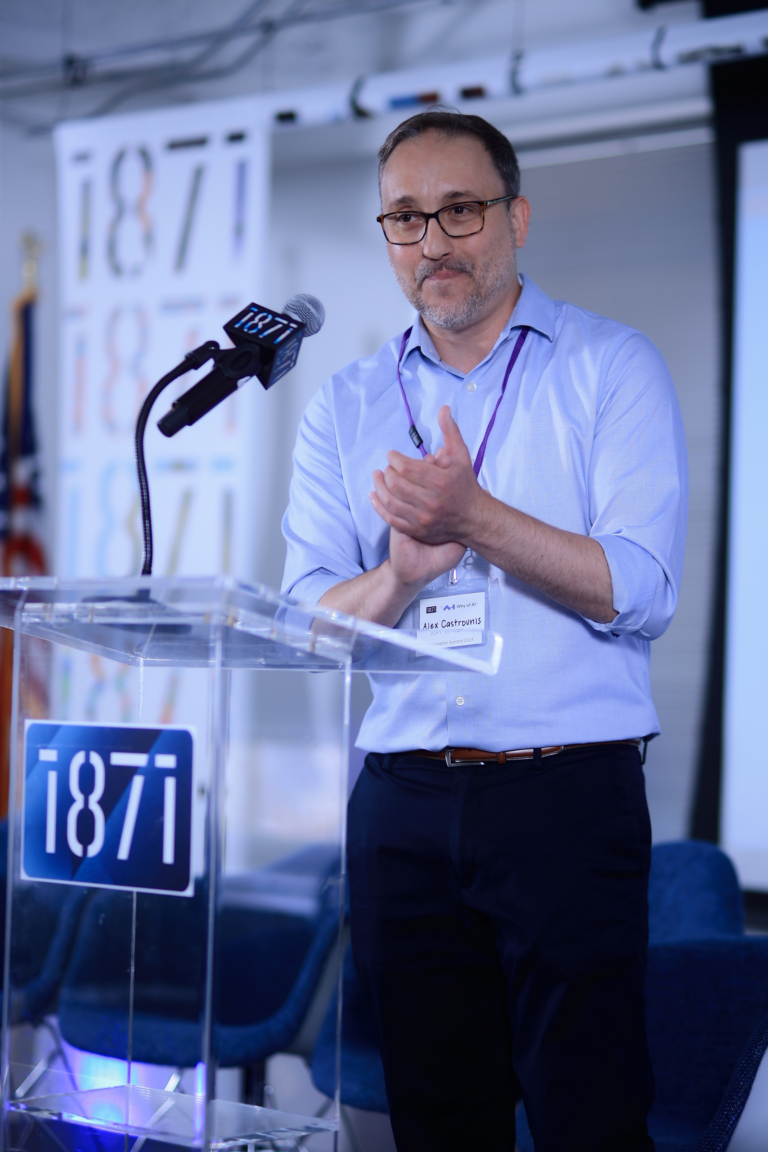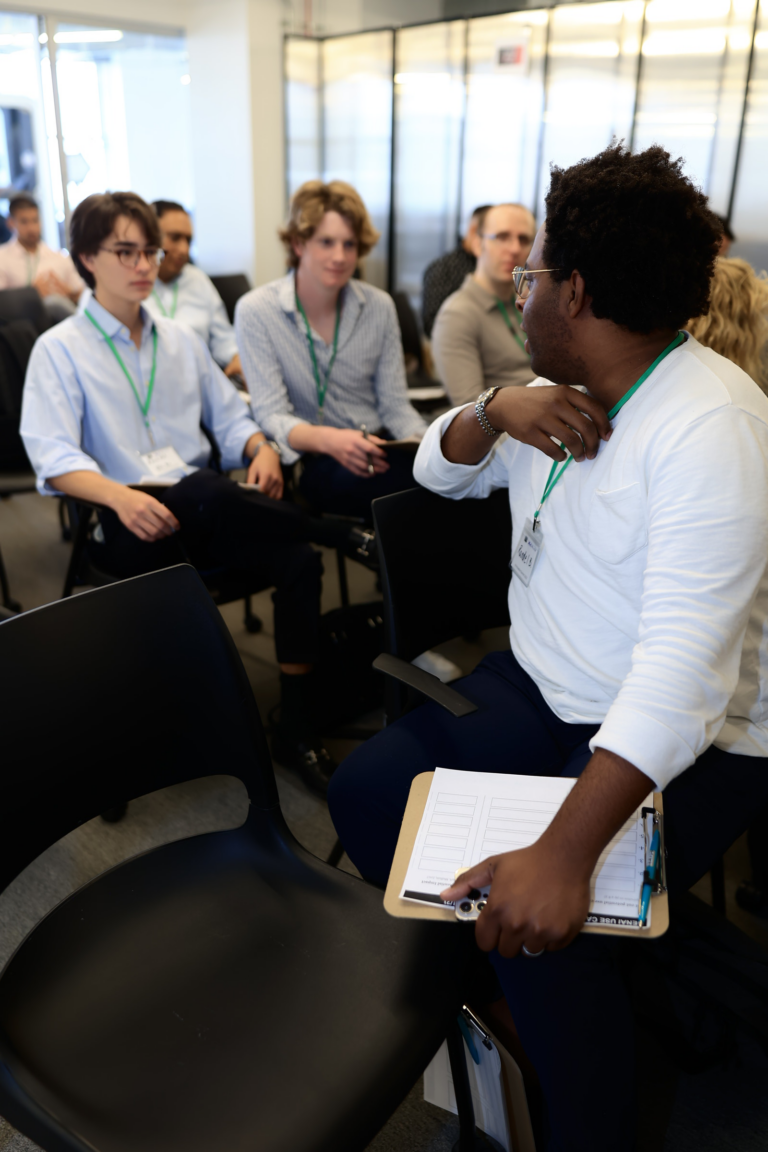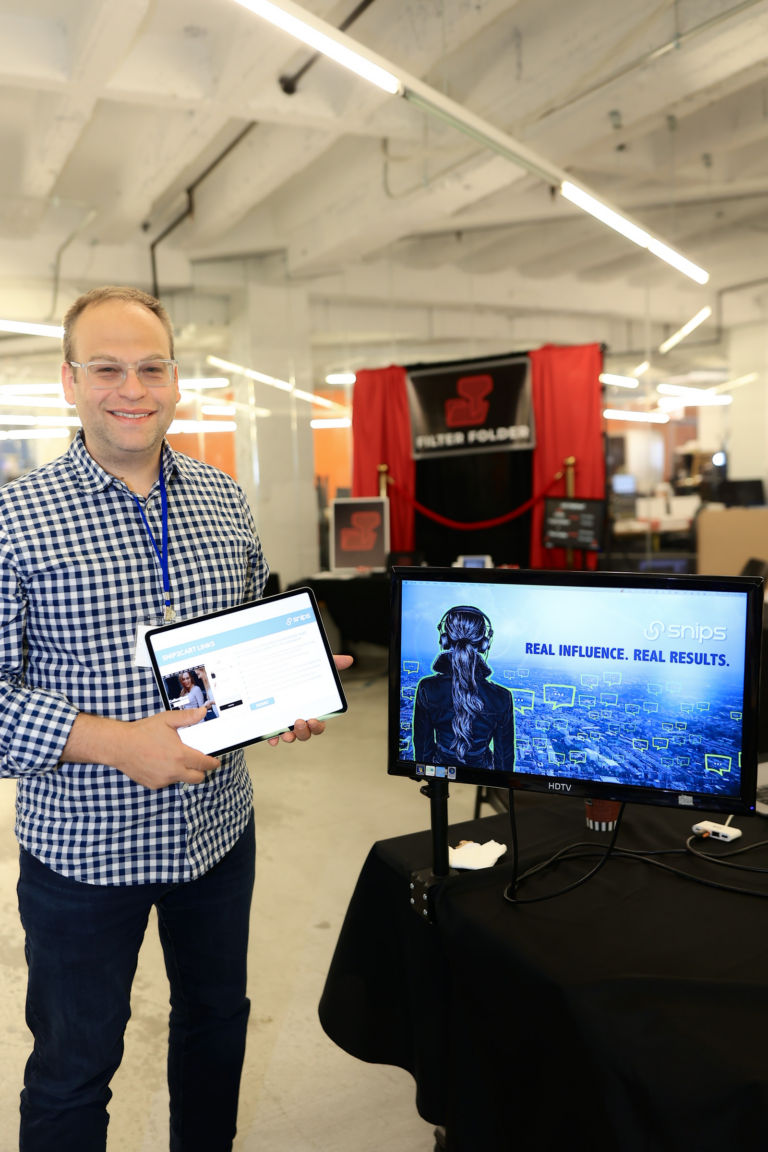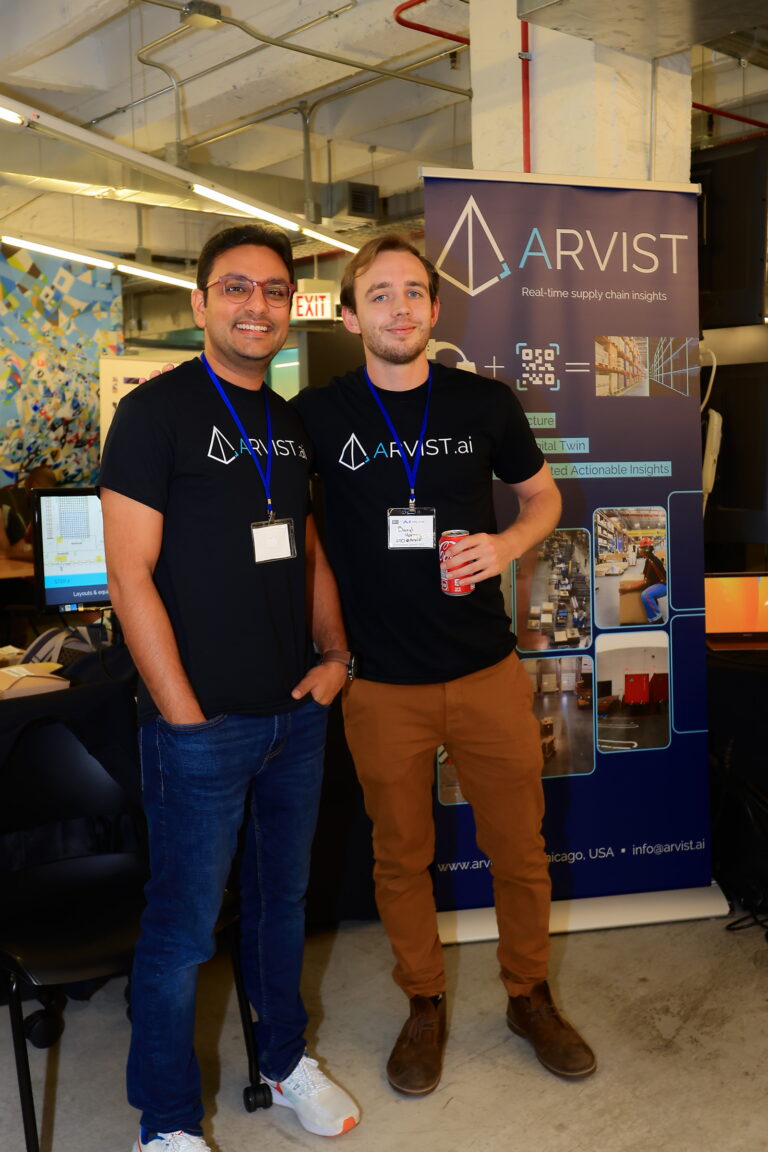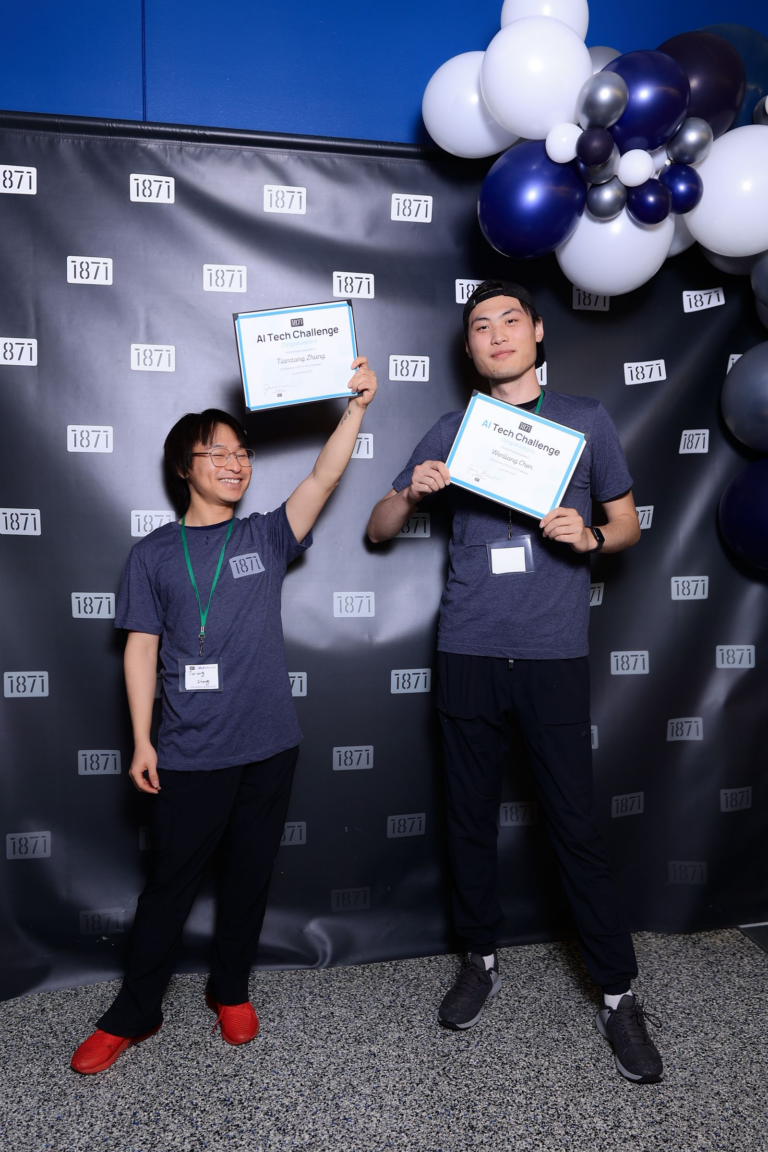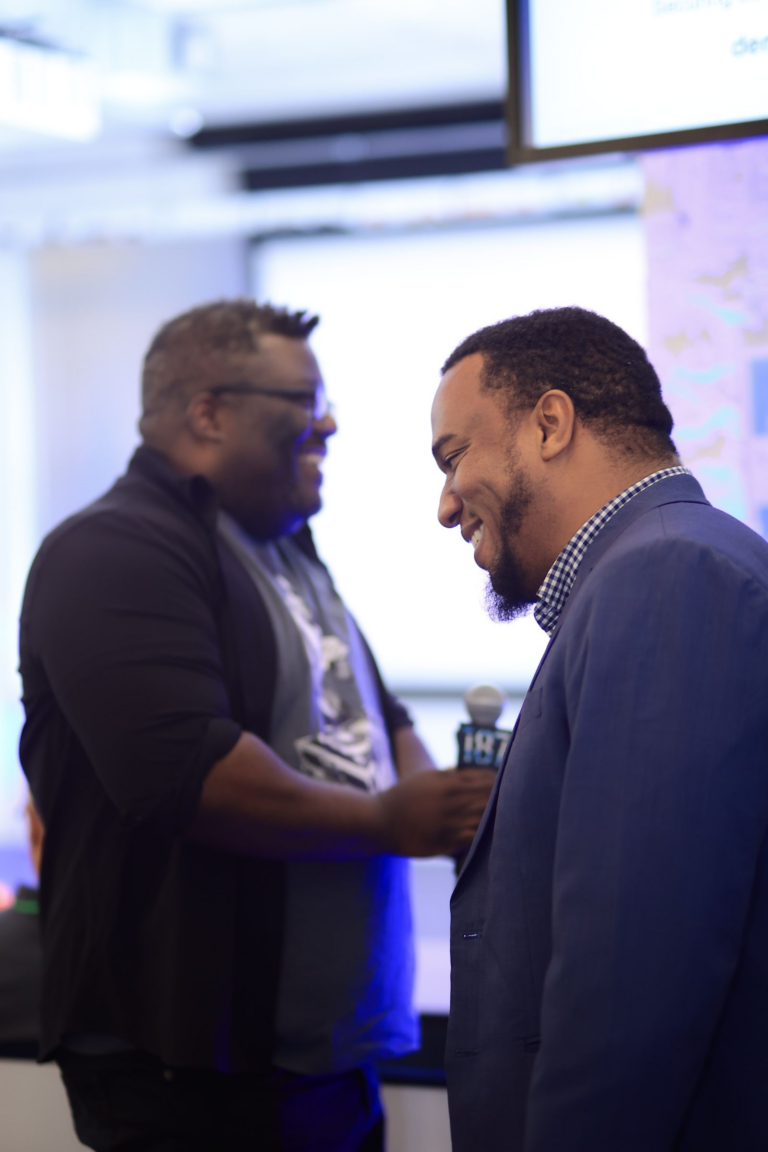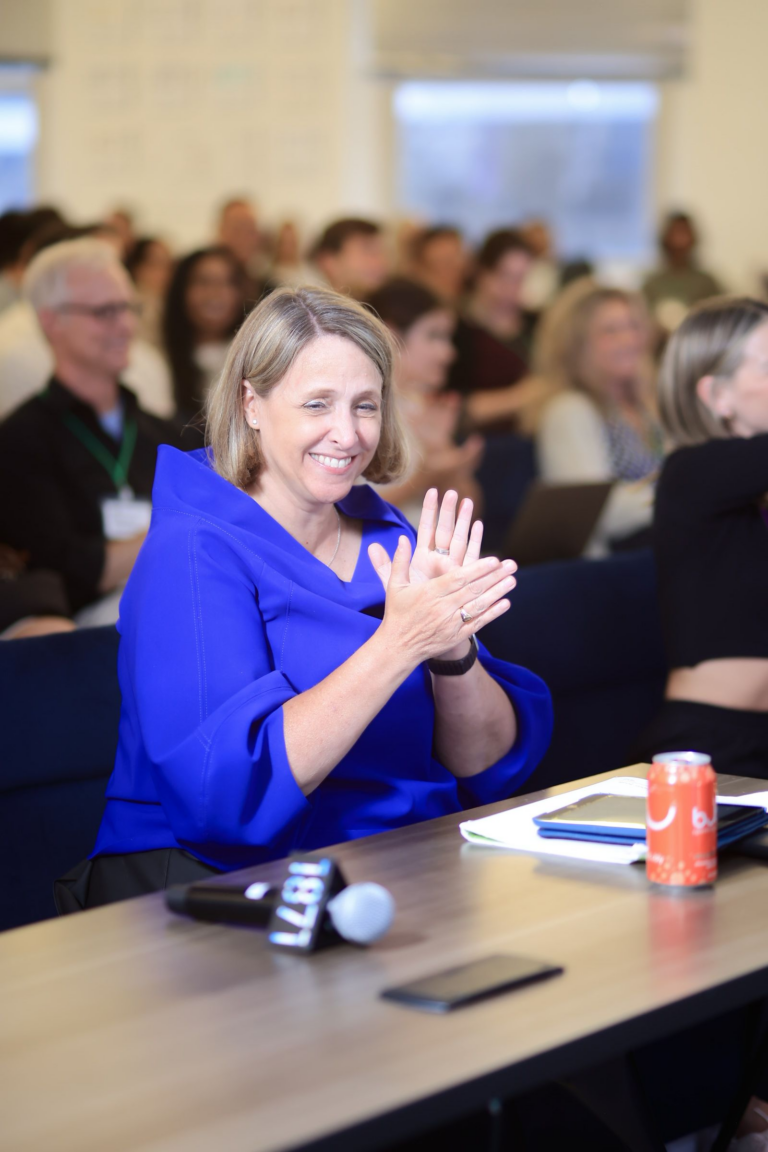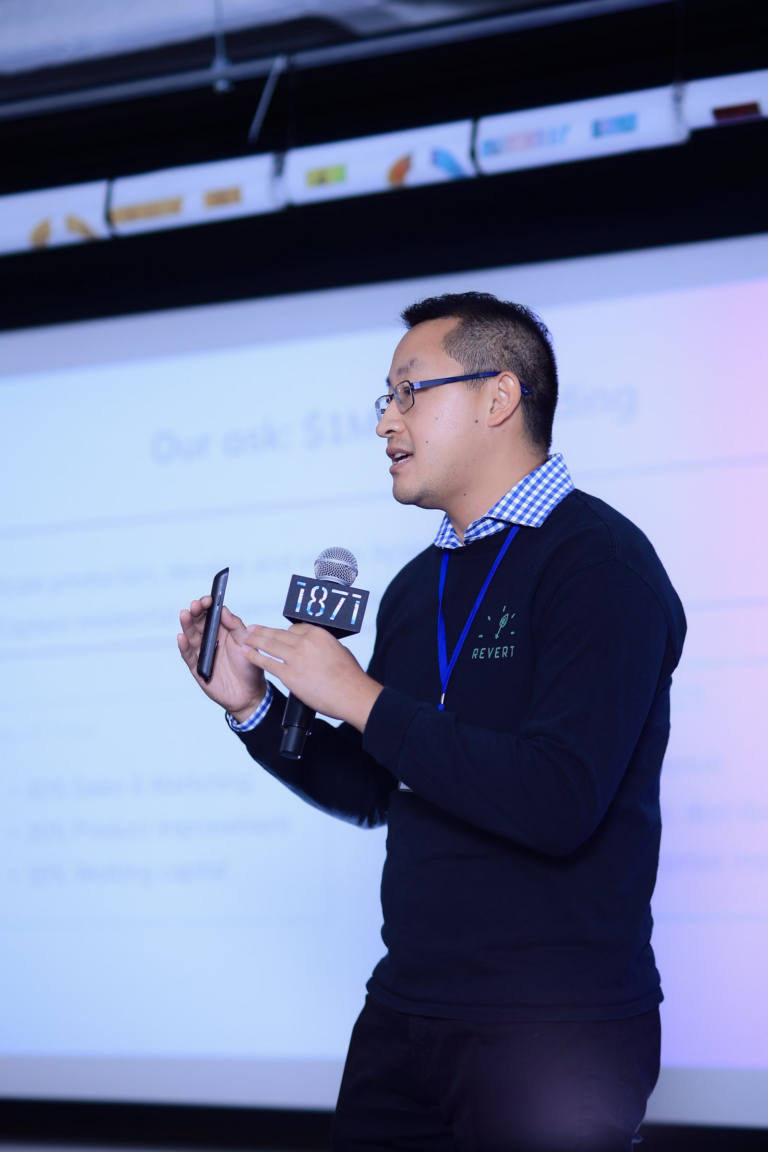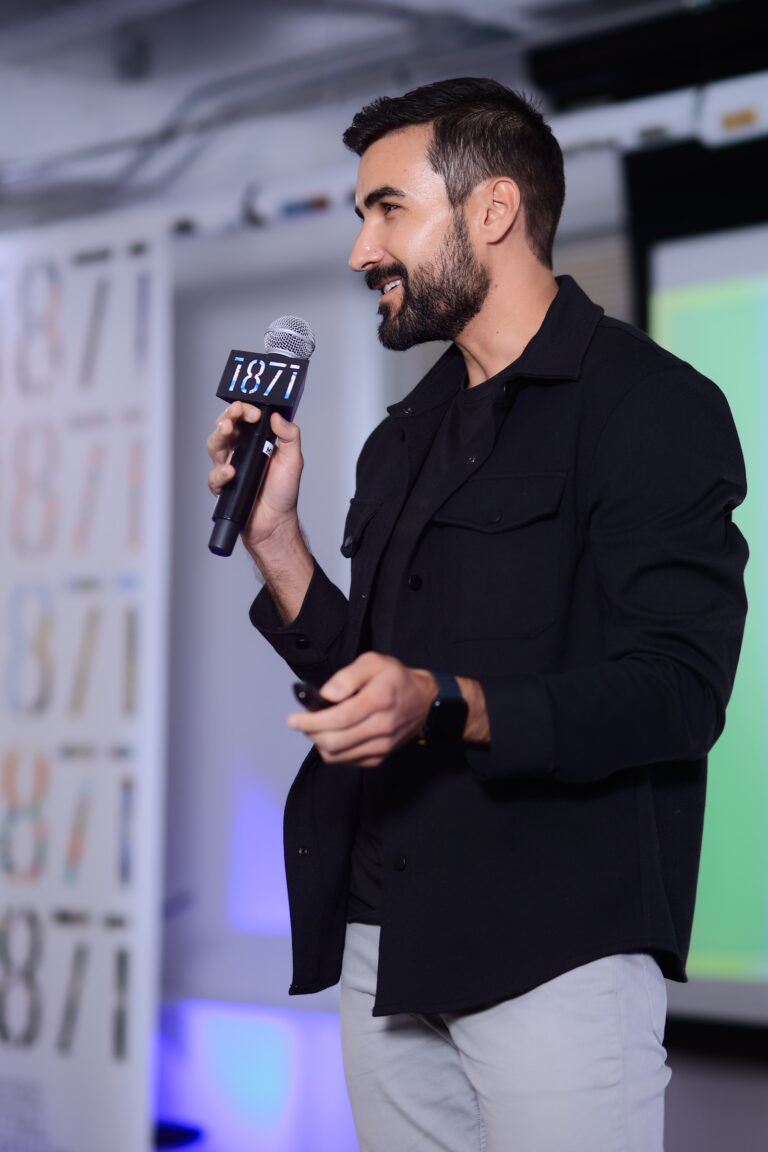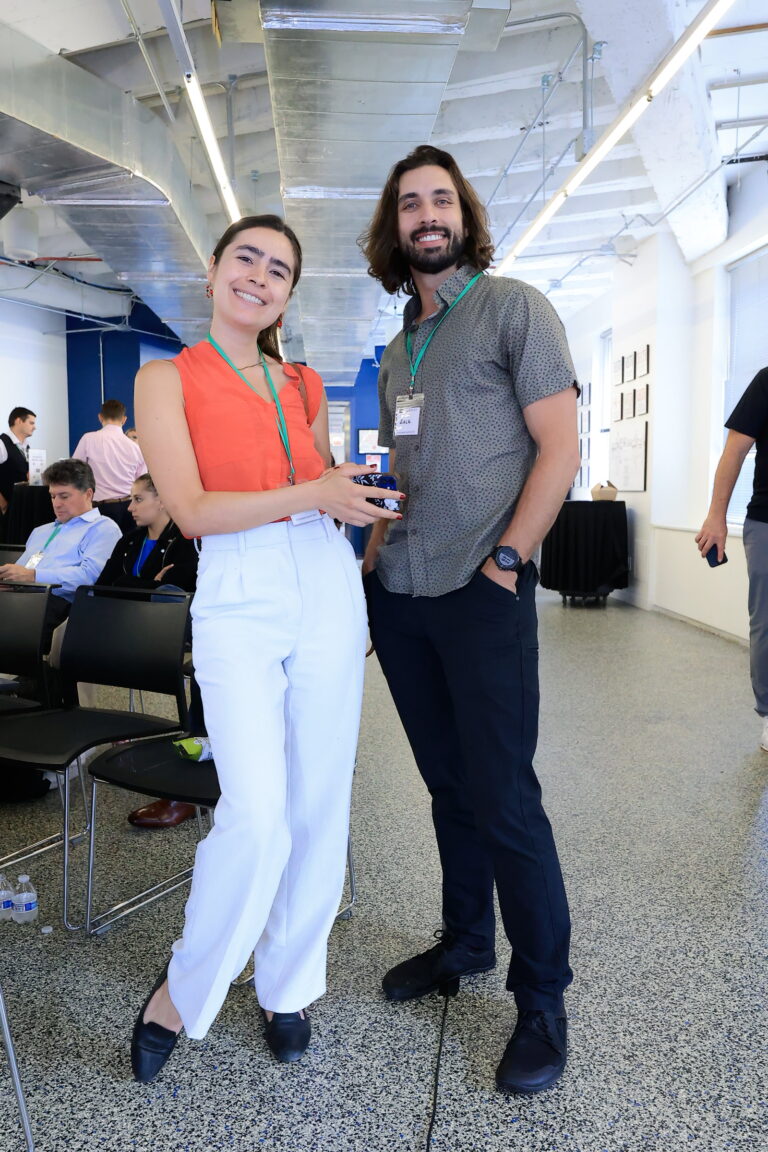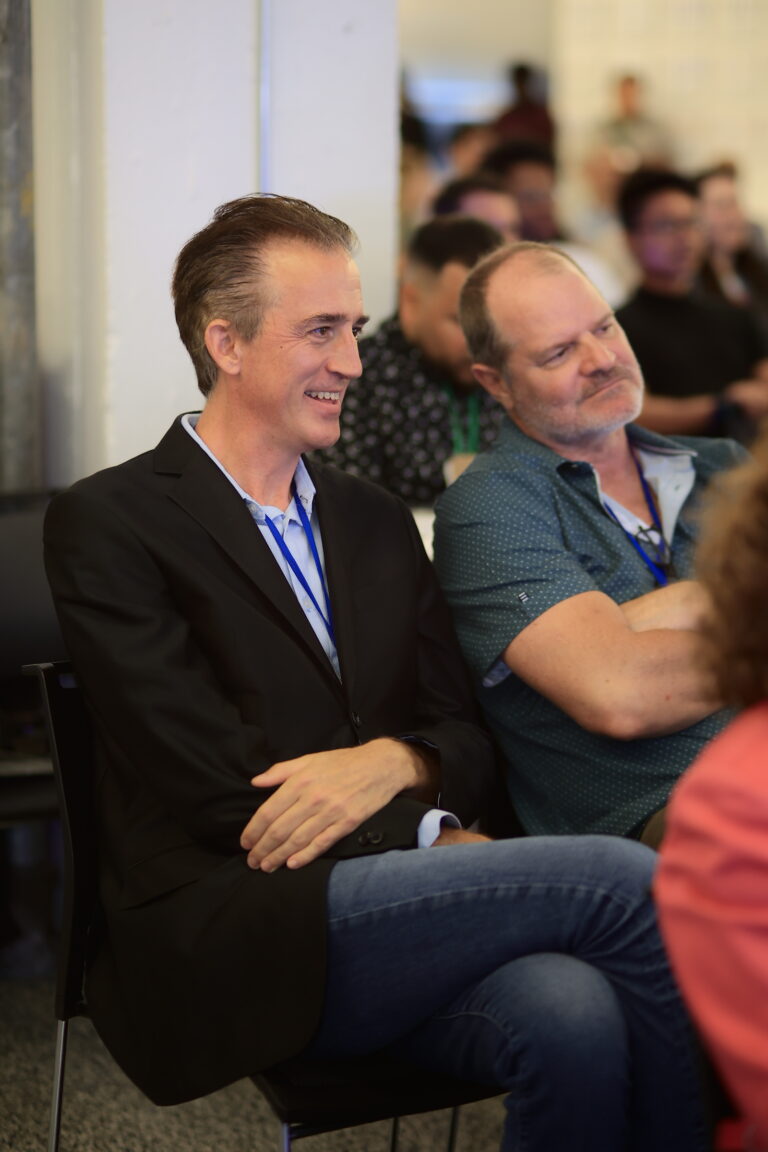1871’s First-Ever AI Innovation Summit Brings Community Together to Explore Cutting-Edge AI Technologies & Transformative Solutions
As artificial intelligence continues to rapidly evolve and is on the up-and-rise, it was only fitting that hundreds of AI enthusiasts, investors, and industry leaders joined us for our first-ever AI Innovation Summit on 06.29.23.
Proudly partnered with Why of AI, this summit culminated to showcase 1871’s first-ever AI Innovation Lab cohort and discuss all the extraordinary advancements and evolutionary integrations of artificial intelligence in a full day of programming and networking opportunities.
“The best way to predict the future… is to create it,” wisely said by Alex Castrounis, CEO of Why of AI. “That’s what we’re doing here. When everything comes together with a great community that understands A.I. drives things forward, we become innovation, pioneers, not followers — and we build a better future where A.I. results in a much better world.”
“A.I. stands as a catalyst, its potential to reshape industries, redefine business models, and clearly disrupt industries is evident,” said 1871 CEO, Betsy Ziegler. “The potential for disruption and pace of change is something we’ve never seen before. Together, we’re embarking on a journey of exploration, where A.I. disruption can unite us together to transform the world.”
A.I.’s Global Transformation
Ana Brnabić, Prime Minister of Serbia, joined our community for a discussion on Serbia’s efforts to ‘become one of the countries at the forefront of utilizing and investing in A.I.’.
From beginning with only paper documents in 2016 to now all documents being digitized for its 6.8 million citizens, Serbia has come a long way, tech-wise. Brnabić plans to continue welcoming innovation, investing in education, and advancing the country within the IT sector, beginning their efforts with e-government.
“It’s almost like being a startup and needing to compete in a fast-changing environment,” said Brnabić. “This is our competitive advantage; we are small, we can adapt much faster, and we showed how it can work.”
From introducing coding classes into primary schools, IT classes in secondary schools, and machine learning classes in high schools — which has transformed into 29% of all students graduating from tech faculties and every second new job created in the IT sector in 2021 — education has been the forefront of their efforts.
Serbia has also invested 200M€ into infrastructures for startup & innovation companies, joined 28 other countries in utilizing A.I., and passed a science fund based on the National Science Fund of the United States for more research and development within the country.
Increasing from an annual IT export in 2012 of 375M€ to 2.7B€ in the latter half of 2016, to now estimates of $4B€ this year, Serbia joins other countries in quickly adapting and innovating with artificial intelligence and machine-learning tech.
“My advice? Invest in education, and embrace tech. Governments and countries can decide to shut their eyes and pretend things aren’t happening, but they are,” said Brnabić. “We should embrace technology and see how it WILL change society and our ways of life. We must anticipate these changes. The role of government is to provide opportunities for people to gain new knowledge and acquire new skills. If we do our job, technology, and AI, if used in the right manner, can bring so much more positive to the world and mankind.”
The power of students in A.I.
Our first-ever student AI Tech Challenge, hosted earlier this year, brought current university students and recent grads together to utilize artificial intelligence while creating models that help solve our partner Discover’s continuous challenge – their call channels.
After much deliberation, we had not one, but two extraordinary Purdue University students win the challenge with their voice-to-text transcription model.
Congratulations to Wenliang Chen, a graduate of Purdue University with a Master of Science in Computer Information Technology, and Tianzong Zhang, an aspiring computer scientist pursuing a Master in Computer Science at Purdue University!
Utilizing A.I. for positive change
As A.I. continues to rapidly adapt and improve, the big question is HOW can individuals — and society itself — use A.I. for positive change?
A.I. experts joined us to discuss several different focus areas of utilizing artificial intelligence in the workplace, and “outside of the office” in their breakout sessions:
- Practicing Trustworthy & Responsible AI, led by Alex Castrounis, CEO of Why of AI, and Ethan Hamilton, Instructional Designer & Researcher with Why of AI
- Design Thinking and AI: Growth Catalysts for Your Business, led by Melissa Dalrymple, Partner at McKinsey & Company, and Winnie Wu, Expert Associate Partner at McKinsey
- Quantumblack: How to Scale, Organize, and Win in the Artificial Intelligence Sector, led by Sataya Rao, Partner at McKinsey & Company, Noa Ran, Associate Partner at McKinsey, and Monica Long, Data Governance and Management at McKinsey
- S#!t’s Getting Real: How to Evaluate A.I. Use Cases as a Pessimistic Optimist, led by Adam Wisniewski, CEO of EX3 Labs
As artificial intelligence is dubbed “the fourth industrial revolution”, Castrounis and Hamilton explained that this is a new opportunity to take key factors of A.I. into consideration when industries are going through conversions.
“AI is going to accelerate. We must take the opportunity to think about how we can standardize the impacts and be mindful of them, so they become good impacts and we avoid risks,” said Hamilton.
A.I. has several impacts on our society, including; economic impact, the future of the workplace, social impact, and environmental impact. So Why A.I., and why should we focus on this?
“It’s time to stop talking the talk,” said Castrounis. “Organizations should incorporate frameworks like the NIST AI RMF into their governance practices to ensure the development and deployment of responsible and trustworthy AI systems.”
Dalrymple and Wu’s interactive workshop explored the profound impact of design thinking on Generative (gen) A.I. The leaders and its audience explored Gen A.I.’s transformative potential of human-centered design principles, and the tools to help organizations be more creative, efficient, and user-centric to ensure product-market fit across all parts of the value chain
“We can talk about Gen A.I. in any way today if we wanted to. But ultimately, we want to talk about how you think about starting with user needs? How do you think about the people involved throughout the experience of your product, the delivery of your product, and ultimately the operational elements of your product,” said Dalrymple. “Gen A.I. can help you with all of these things. It can be something that is helping you understand what to put out there in the world and help make that process simpler. It’s a pretty critical opportunity for you.”
Rao, Ran, and Long’s breakout session discussed how to make businesses organizationally ready to adopt A.I. trends across various landscapes, including talent, technology, data, and tooling.
“Gen A.I. is going to make people’s lives easier, using data and getting insights to make experiences better for customers,” said Rao.
A research study by McKinsey found that generative A.I. can add up to $4.4 trillion in annual global productivity.
Breakout session leaders demonstrated how McKinsey is utilizing generative A.I. with a demonstration of their very own tool, Jarvis. The generative A.I. tool was created to reduce the time taken going through documents to see how experts have approached problems previously.
The potential of A.I
Hosted by Satya Rao, Partner at McKinsey & Company, our diverse group of AI expert panelists discussed ‘Navigating the A.I. Frontier’, with a focus on ethical considerations, latest advancements, & potential societal impacts.
“To harness the power of A.I., I think investing in the right kind of platform is key. Ask anyone who builds models, your model is only as good as the data that feeds it,” said Anu Kondepudy, Director of Analytics & Innovation at United Airlines. “If you don’t move quickly then your solution is already too old.”
In addition to Kondepudy, expert speakers included Kris Hammond, Professor of Computer Science at Northwestern University & Director of The Center for Advancing Safety of Machine Intelligence, Adam Wisniewski, CEO at EX3 Labs, Adam Caplan SVP of Salesforce A.I., and Raghu Kulkarni, Vice President of Data Science at Discover Financial Services.
“The key challenge is as we feed more data, the risk of unintended consequences increases,” said Kulkarni.
We ended the summit with an intimate conversation with Max Hjelm, VP of Sales at CoreWeave, interviewed by Ernie Rogers, COO of Magnetar Capital, core investor and independent board member of CoreWeave.
“We believe that A.I. will add value to investments. The industry is changing rapidly and we’re ready to help A.I. companies grow. We’re focused on improving business processes and gaining efficiencies” said Rogers.
“What should people be focused on? There’s a lot of subject matter that goes into this industry,” said Hjelm. “I think less of a skill and more of a mentality that you can adapt is a go-getter mentality and tenacity, what business is looking for is people who are willing to push the envelope.”
Current players in A.I.
Attendees had the opportunity to discover the innovative new products and services that 1871’s first-ever AI Innovation Lab cohort is working on in our Startup Tech Alley.
Founders set up booths for public engagement, investor conversations, and product demos for inspiration on reshaping industries and driving innovation with their AI-powered solutions.
We had a blast hearing from these founders and their real-life businesses that are making a difference in A.I. in our pitching showcase.
We heard extraordinary pitches from Nico Anguilar, CEO of Speeko, Nancy Munro, Founder & CEO of Verbal Transactions, Derrick L Johnson, Founder of Encounter AI, Marc Ward, CEO of Socian Technologies, Nilay Parikh, Founder & CEO of Arvist, Kimberly Foerster, CEO of CharacTour, John Burkey, CEO / CTO of Brighten AI, and Ryan Li, Co-Founder & CEO of Revert Technologies.
Congratulations to our winner Speeko, and the “fan favorite”, Socian Technologies!
Watch our AI Innovation playlist , and we’ll see you next year for AI Innovation Summit 2024!
2023 gallery
Join as an 1871 Early Stage Member.
Attend info sessionSubscribe to our ICYMI newsletter.
Share this post:


